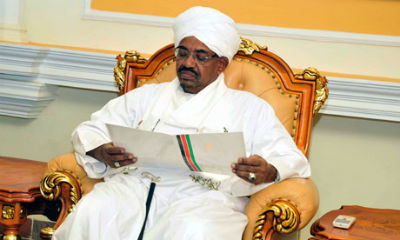 By Eric Reeves
By Eric Reeves
October 12, 2013 (SSNA) — Does the IMF think that bloody crackdowns on demonstrators in Sudan are irrelevant in assessing Khartoum’s economic performance? In a press release (October 12 , complete text below)—speaking to relief from the gargantuan external debt accrued by the National Islamic Front/National Congress Party regime over the past 24 years—the IMF failed to mention, even indirectly, the more than 300 who have been killed, hundreds who have been injured, and more than one thousand who have been arrested—even as this brutal repression comes in response to the austerity measures imposed by the IMF and which, given Khartoum’s priorities, translated into the lifting of subsidies for fuel on September 22. The IMF finds it possible to declare in the scope of this brief press release:
• Participants to the TWG were encouraged by the recent progress in implementing the provisions of the 2012 Bilateral Cooperation Agreement. They welcomed progress made by Sudan, including the recent implementation of difficult reform measures that could form the basis of a successor SMP, and the adoption of an I-PRSP. They also called on Sudan to maintain the reform momentum….
• The IMF also noted that ”significant progress was made in the technical area in support of debt relief….”
• And most strikingly, “Mr. Edward Gemayel, the IMF’s Mission Chief for Sudan noted that ‘Sudan has a long track record of implementing sustainable economic policies.’”
It is difficult to tell here whether cynicism or mendacity is greater, or even distinguishable. In any event, the message to Khartoum’s génocidaires is clear: “do what you must to meet our benchmarks.”
****
IMF – International Monetary Fund : Press Release: Sudan—Meeting of the Technical Working Group on External Debt
10/12/2013 | 02:31pm US/Eastern
Press Release No. 13/404
On October 9th, the IMF and World Bank staff co-chaired the 7th meeting of the Technical Working Group (TWG) on Sudan’s external debt on the sidelines of the 2013 IMF-World Bank Group Annual Meetings. Delegations from the Governments of Sudan and South Sudan and President Mbeki, Chair of the African Union High Level Implementation Panel (AUHIP), President Mbeki, attended, in addition to the official bilateral and multilateral creditors.
Participants to the TWG were encouraged by the recent progress in implementing the provisions of the 2012 Bilateral Cooperation Agreement. They welcomed progress made by Sudan, including the recent implementation of difficult reform measures that could form the basis of a successor SMP, and the adoption of an I-PRSP. They also called on Sudan to maintain the reform momentum, continue the technical work, including the establishment of a track record of policy reforms with the IMF and stepped up outreach efforts towards creditors. They also underscored the importance of handling the “zero option” in a flexible way.
TWG participants welcomed the creation of the Tripartite Committee (Sudan/South Sudan/African Union) as a platform to strengthen relations between the two countries and coordinate outreach efforts towards creditors. In this context, President Mbeki emphasized “the importance of the platform to ensure an environment that is conducive to peaceful relations between these two countries and move forward the debt relief process.”
In its concluding remarks, Ms. Bella Bird, World Bank Country Director for Sudan and South Sudan noted that “providing the necessary debt relief to reduce Sudan’s external debt burden to a sustainable level is critical to supporting economic development in both Sudan and South Sudan.” Noting that significant progress was made in the technical area in support of debt relief, she called on both governments to intensify their outreach to Sudan’s creditors.
For his part, Mr. Edward Gemayel, the IMF’s Mission Chief for Sudan noted that “Sudan has a long track record of implementing sustainable economic policies”, and added “that a successor SMP supporting an appropriate policy framework would help Sudan establish a sound track record of performance in the period through the Decision Point that would one crucial element in gaining creditors support for the debt relief process.
Eric Reeves is a professor at Smith College and has published extensively on Sudan; his most recent book is Compromising With Evil: An archival history of greater Sudan, 2007 – 2012, available at no cost: www.CompromisingWithEvil.org

